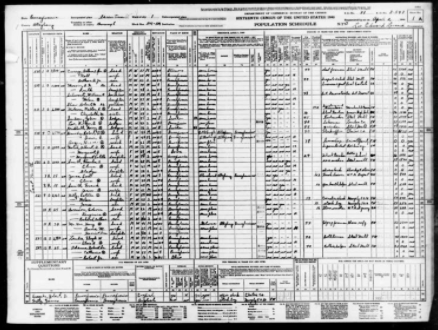
The year 2020 marks the 230th anniversary of the US Census. The first census for the United States of American occurred in 1790, under Thomas Jefferson’s supervision when he was Secretary of State for president George Washington. There have been 22 federal censuses since then, and 2020 marks the 23 census conducted.
The US Constitution states that the US census legally has to occur every ten years for the purpose of apportioning the US house of representatives. Simply put, it is required to better the representation of the people in the government.
The US census has since grown in the past 230 years, becoming more important in shaping the nation. The results collected from the census impact how the next ten years will play out.
According to 2020census.gov, the US census impacts how local communities get funding for public projects, such as roads and parks. Grants for buses, subways, and other public transportation are also influenced by the census. The Federal Transportation Administration receives grants, based on population density, to provide public transportation across the country.
Funding for local public schools, such as Leesville Road High School, are also reliant on the census. Census.gov said “Census results help determine how money is allocated for the Head Start program and for grants that support teachers and special education.” The Head Start program promotes school readiness for children and teens from low income families.
Legally, everyone living in the United States as a citizen and the five territories (American Samoa, Guam, the Northern Mariana Islands, Puerto Rico and the U.S. Virgin Islands) has to be counted in the 2020 census.
Results of the US census are released 72 years after they were collected, to keep information about those individuals private. This privacy is protected by The 72 Year Rule, a federal law passed in 1978. 72 years may seem like an odd number, but it was the average lifespan at the time; therefore, information about a person was protected for the time that they have lived. The most recent census available to the public is from 1940, right before the United States entered World War II.
Due to Covid-19, the Census Bureau has decided to postpone the result collection, seeking acceptance from Congress to add an additional 120 calendar days to the collection time. As of yet, Congress has made no decision whether to follow through with this plan.
The US Census is important in the role of shaping the nation for the next ten years. Every person matters; everyone impacts how our community will develop and modernize.

Hi! My name is Alexis Taylor, and I’m a staff writer for The Mycenaean. I am also a volunteer video editor for my church. I love older music, TV shows, and movies!